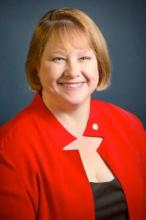The primary care “pay bump” is about to end.
Passed as part of the Affordable Care Act, the Primary Care Incentive Payment Program has added a 10% bonus to the Medicare physician fee schedule for doctors who self-designated a primary care specialty and have at least 60% of their Medicare billings designated for primary care services.
Depending on who was doing the math, physicians have been receiving between $3,900 and $5,000 per year, on average, paid quarterly, with some receiving as much as $9,000 per year. We asked a number of physicians how the end of the pay bump will affect them.
How will it affect you? Take the poll or leave a comment below.
Dr. Wanda Filer, president, American Academy of Family Physicians
“The concern, obviously, is that some [physicians] took these extra several thousand dollars and deployed them to get new resources for their practices and they often run on very thin margins with Medicare patients, so the concern is are they going to be able to continue some of that enhanced service? I have seen one story where those monies helped to support hiring a person. Obviously, it didn’t make the whole salary, but helped to support a person to try to do some more care coordination and the concern will be whatever these monies have been used for over these last few years, are we going to lose ground there?”
Dr. Filer noted that the expiration of the pay bump might be only a “short-term pain” in the transition to value-based payment models. “In a very short period of time, we are going to be doing more and more value-based payments and clearly primary care has a big opportunity to get a little bit bigger piece of the health care pie in terms of dollars because there is such a huge value in a coordinated system ... It really makes a difference right now if you continue that transition to medical home if you haven’t already done it because it will automatically position you into a value-based system.”
Dr. Wayne J. Riley, president, American College of Physicians
The expiration will not be a “catastrophic loss, but it is very disappointing in light of the fact that we know we have uneven distribution of primary care physician manpower and there are fewer and fewer medical students electing to choose primary care, principally because of the big pay differentials between primary care and some of the specialties. We think it sends the wrong message. It has the downstream effect of devaluing primary care … at a time when we know that our health care system really needs doctors who enjoy and take on the responsibilities of providing primary care services.
“The beauty of the primary care bonus in the Affordable Care Act, both the Medicaid primary care bonus which expired last year and Medicare’s which expires this year, is that it explicitly values primary care with the strong signal that primary care is needed, is valuable, and should be better compensated in order to make sure that our patients and our communities have access to good primary care physicians.”
Dr. Rajeev Kumar, medical director at Adventist Midwest Geriatrics Specialists of LaGrange, Ill.
The impact of bonus payment is “meaningful. My specialty is geriatrics and I am the lead physician for a group of 13 physicians. We all practice geriatrics; our practice is maybe 99.8% Medicare based. We definitely do benefit from this incentive. Traditionally there has always been a pretty substantial disparity between payments to primary care physicians and to specialty physicians and also procedure-based physicians and this has kind of negatively affected the number of physicians choosing primary care.”
Dr. Kumar said the cut will likely affect his personal income. “I will probably take home less money. My specialty is such that I am not going to be able shut my doors and say I won’t take Medicare patients. My entire practice is based on Medicare patients. It is a loss that we have to absorb. I can’t pay my secretaries, my billers any less because they would leave and find somebody else to work for. It eventually affects my bottom line as a primary care doctor.”
Dr. Victor Roberts of Endocrine Associates of (Lake May) Florida
“The amount of money which the American College of Physicians predicted a general internist [who qualifies for the incentive payment] would receive is approximately $8,000 extra per year. It’s unlikely that this additional payment will make or break a practice, particularly if it is paid out quarterly. That would be $2,000 every 90 days. Based on current primary care reimbursements, and considering the complex work the primary care medical professionals do for our patients, the Medicare Bonus Payment Plan is, in my opinion, inadequate.”



